Summer 2024
The work we've been doing over the past months and where we will go from here
First, thank you all for bearing with us as we have taken the past couple months to adjust to the new reality in the Kharkiv region and work out how best to move forward.
A word on the current situation: the Russian ground assault on the region, although initially relatively successful, was quickly halted by Ukrainian forces. Of the villages that we work in, none were taken, however all have suffered varying levels of damage. Thankfully the majority of the work we have done remains intact, however the situation remains tense and the feelings of hope in the villages are definitely muted, replaced by a grim acceptance that the war will continue to rage for the foreseeable future, and people must choose either to leave or to simply try to live the best they can within it. We have spent the past week touring our villages and making plans for how to support them going forward.
Over the past two months since the new offensive began our priority has been support with energy infrastructure, however even now in the deep heat of Ukrainian summer, thoughts are turning to the colder months. Having travelled round the villages, speaking both to the administrations and to the residents who remain (which is, incidentally, most of them), we have made the decision to, barring any dramatic developments, restart work at the end of August. Like in autumn 2022 when we first started our repairs programme, our priority is once again going to be winterization: providing the minimal repairs needed for people to survive the winter in their homes. Our priority is people who have unavoidable reasons for being unable to evacuate. In almost all the areas we operate, the situation has generally stabilised and some smaller scale work is able to resume, with the heartbreaking exceptions of Mali and Velyki Prokhody, now firmly back on the frontline. For the time-being, we will be working in Tsyrkuny, Slatyne and Derhachi.
One household we have committed to supporting is Mykola’s, or as he is generally known, Diadia Kolia (Uncle Kolia), in Tsyrkuny. In his seventies, Mykola is famous in Tsyrkuny for his committed volunteering. Having lost his wife and son from Covid before the war, once the invasion began he dedicated himself to supporting his community, taking in abandoned animals and delivering food to the bedbound around the village. I received a call from Kolia a few weeks ago. He had received my number from a friend in the village for whom we had done repairs a year ago. He explained that his house, in which he lived with his sister, Liuba, and their bedbound ninety-three-year-old mother, had been totally destroyed by a Russian glide bomb. Luckily, he and his sister had been in the garden, whilst their mother had been in the outhouse, and all survived with minimal injuries. The outhouse was also mainly unharmed, suffering roof damage and having its windows blown out. The local community rallied to help them, fundraising to buy materials for roof repair. They were not able to raise enough for windows however, and so Kolia asked if we could help. My initial question was whether they would consider evacuating. Kolia explained that, given his mother’s age and disabilities, it was not feasible for them financially, physically, or, for that matter, emotionally. They will stay in their outhouse come what may. When I visited them, he told me that several of the cats they had rescued throughout the war had been killed in the attack – but that a few days before a soldier had brought them an abandoned kitten he had found in the Donetsk region, and so his volunteer work continues.


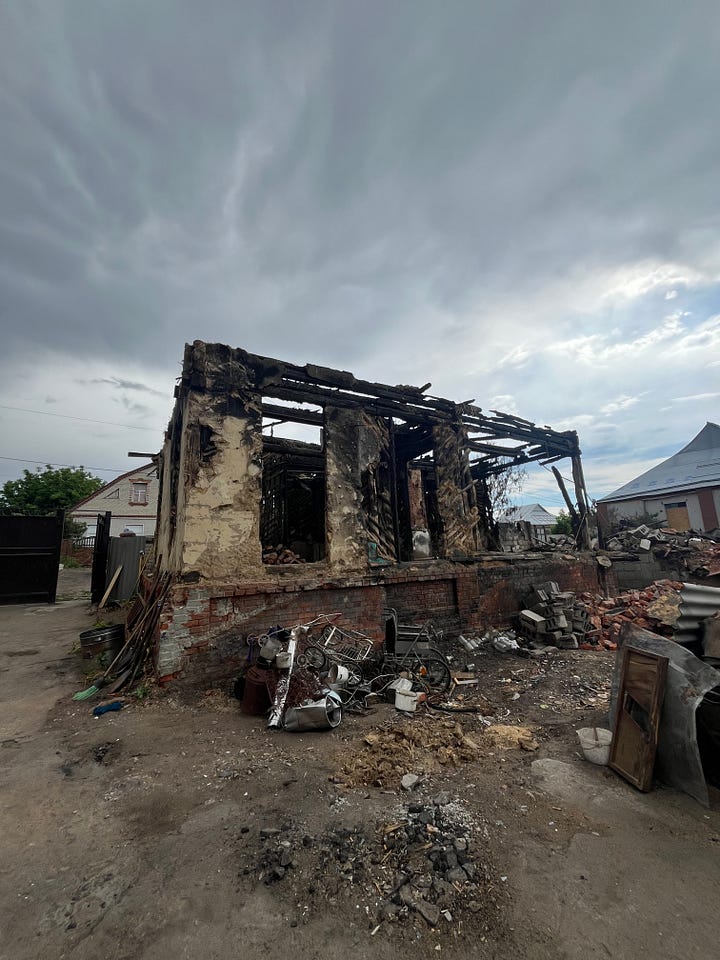

Among the many in the villages unwilling or unable to leave their homes are a large number of internally displaced people. Much of the movement of people due to the war is not country-to-country, but village-to-village, or sometimes even street-to-street. People move just a few miles up or down the road in order to find some vague semblance of safety. Raisa and her husband Malak are originally from Kharkiv, where they lived on the top floor of a highrise in the North Saltivka region. In the first week of the war, as they hid in the metro, a rocket hit their building, totally destroying their apartment and everything inside. They then moved to Malak’s native Azerbaijan, however after a while Raisa decided she couldn’t cope being so far away from home. The trauma of the first months of the war in Kharkiv had induced epilepsy in Raisa, but now she felt that the stress of homesickness was making it worse. A family member had moved to Germany and left their home in Tsyrkuny empty, and so last year Raisa and Malik moved there. The four-room house had been lived in by fourty Russian soldiers whilst under occupation, and they still haven’t finished cleaning the mess that was left. When the soldiers left, they also stole the radiators. On top of this, the house has no windows. Last winter, they lived in the house filled with frost, and neither is quite sure how they survived, but both are confident they won’t be able to do it again. Nonetheless, they are not willing to be displaced again, and are determined to stay in Tsyrkuny until such a time when they might be able to receive compensation for their apartment and move back to Kharkiv, however this is unlikely to happen before the end of the war.
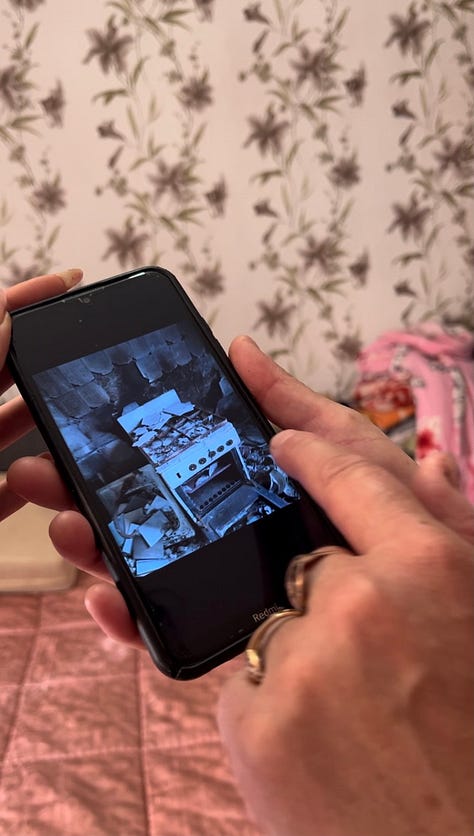

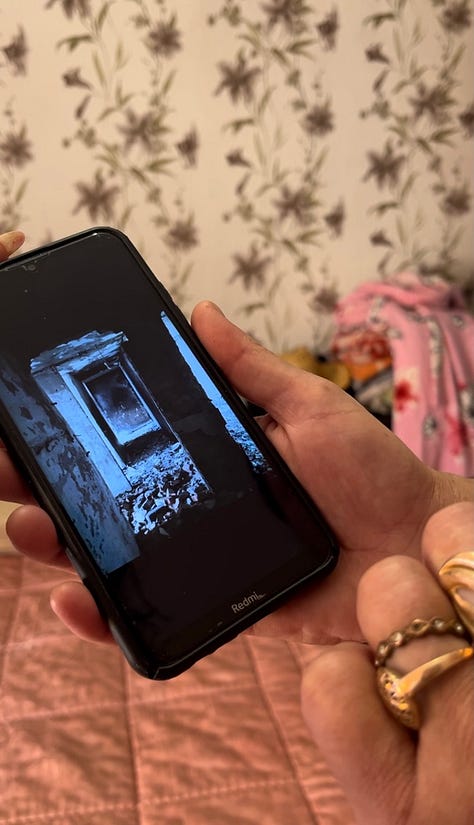
Over the past week, we have visited thirty such homes where people are unable to leave and where we have agreed to provide the necessary repairs for them to see through the winter months.
Our other work
Zhenia, the Slatyne starosta, has also asked for our help in purchasing a new car for the administration to be able to deliver humanitarian aid to the areas closest to the frontline and border. A horrific attack on the Slatyne administration building last month, which thankfully did not kill anyone working there, destroyed all the official vehicles. He has asked for an ordinary, small minivan, so that local volunteers are able to make these incredibly dangerous journeys to support those in the most precarious areas as safely as possible. We have sourced an appropriate vehicle in western Ukraine and are looking to fundraise £4,000 for its purchase and delivery to Slatyne. We are also looking at options in the UK and the EU. This week, we recorded a video with Zhenia describing the need:
If you might be able to help specifically with this need, please do get in touch with us at contact@kharpp.com.
We continue to support Anastasiia, the doctor from Vovchansk who has relocated her clinic to Kharkiv and continues to work for her community in displacement. We have bought £2,500 worth of medicines for her to distribute for free to her patients, as well as equipment furniture for her clinic.
We continue to provide Starlink satellite internet access to five different village hubs, as well as to deliver fuel across the region to ensure generator-supplied energy can be relied upon. Following the attack on Slatyne’s administration building, we are also helping to restock the administration with the items which were destroyed.
Fuel and a lawn mower delivered last week to Slatyne.
As we reach the grim mark of two and a half years of war, with no end in sight for the time being, we are more grateful than ever for all of your support. That we are able to keep working, and to keep providing sustained and reliable assistance to these communities means so much both to us and to them.We are particularly grateful to all those who go to the effort of hosting fundraisers for us and want to express our huge gratitude to everyone involved in the Cambridge Kupala Fest, who hosted an event in aid of KHARPP last month. In particular thank you to Piotr Czosnyka and the Polish Waves Radio, Elmaz Asan, Dvi Doli, Tetiana Kysliak, Malva Choir, Maciej M. Pawlikowski, UKR Books, Vadym Granovskyi, Ukrainian Wine Company, Olha Havrina, Anastasiia Palashynska, Valeriya Korbina, UAID, Peter Nixon, Natalia, Halyna, Iryna, Tetiana, St Giles’ Church, and all the volunteers who helped make the event happen.
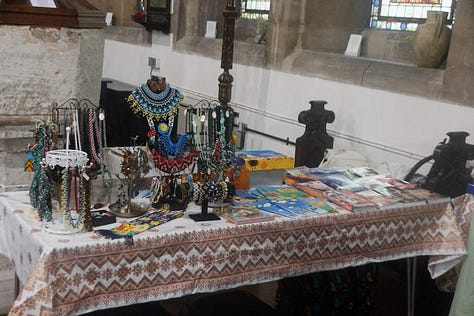
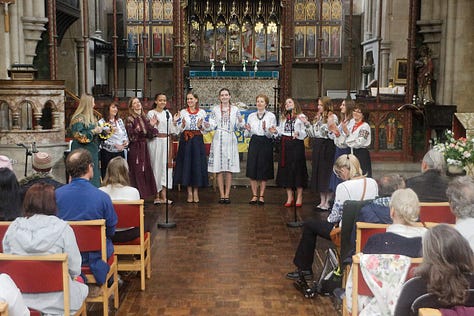

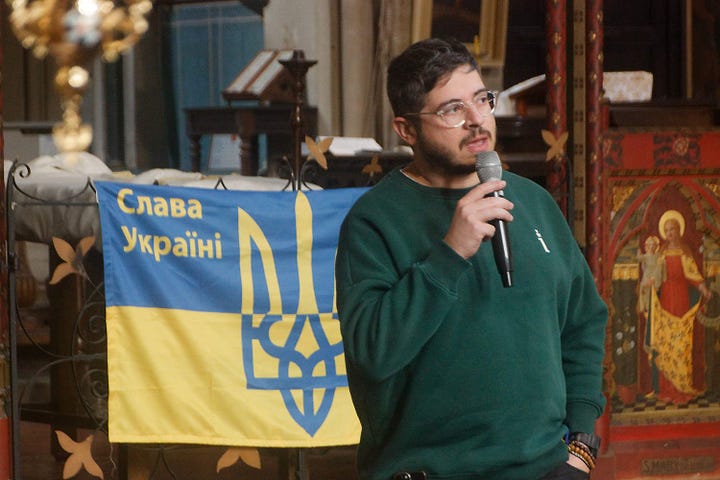
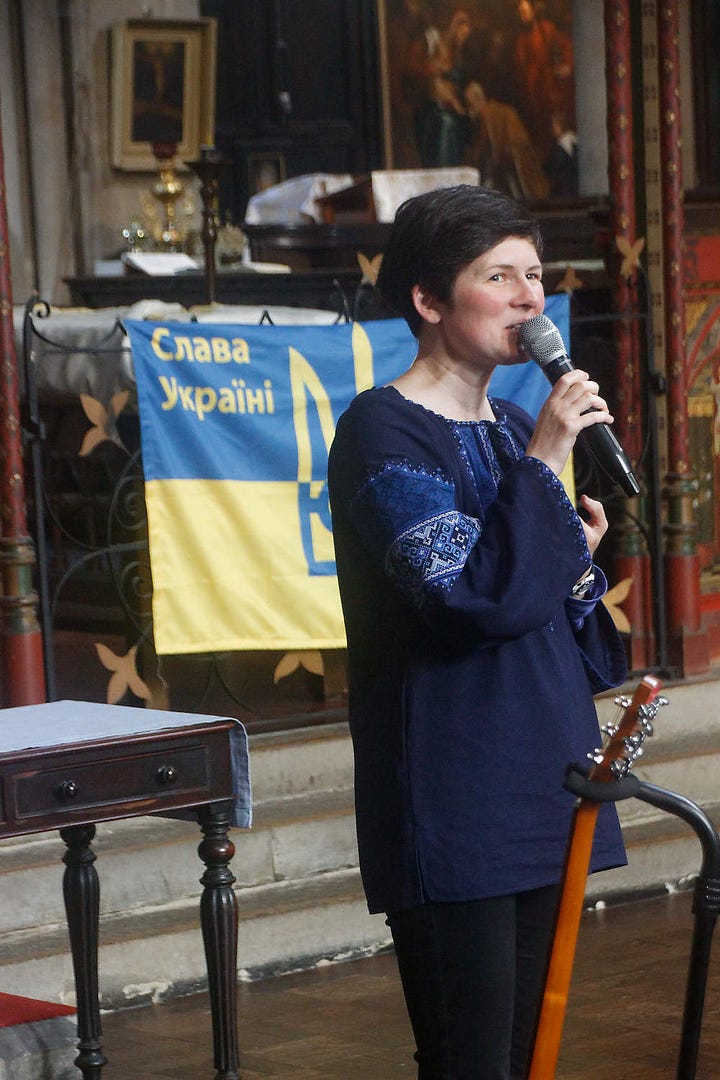
Once again, thank you all for sticking with us. This has been an unspeakably difficult couple of months, but your support has enabled us to keep going, and for our work to remain impactful. As summer slowly draws to a close and the third full winter of the full-scale invasion approaches, stick with us, and help us to continue to help the people we work with. Whilst we are so grateful that the vast majority of our work has been undamaged in the new offensive, we are also acutely aware of what has been lost in Mali and Velyki Prokhody. Looking at these two villages, where we are no longer able to operate and where the residents have been forced to evacuate, we are nonetheless so proud of the work we could do there. We can’t predict what the future will be in Mali and Velyki Prokhody, but that for over a year and a half between their liberation in September 2022 and the new offensive in May 2024, people were able to come back and briefly experience life in their own homes, on their own land, is something we are so proud to have contributed to. The sentiments expressed by all the residents of the villages that we have spoken to has been unreservedly one of gratitude, that they were able to buy some extra time in their homes when it seemed so unlikely in autumn 2022. It is thanks to your donations that that was able to happen, and it means more than can be put into words here. I wanted to end this newsletter with this photo that Sveta, the starosta of Mali and Velyki Prokhody, shared with me on Orthodox Easter this year, just a week before the new offensive started, to remember the life that had come back to those villages, and that we hope more than anything will be able to come back once more soon.



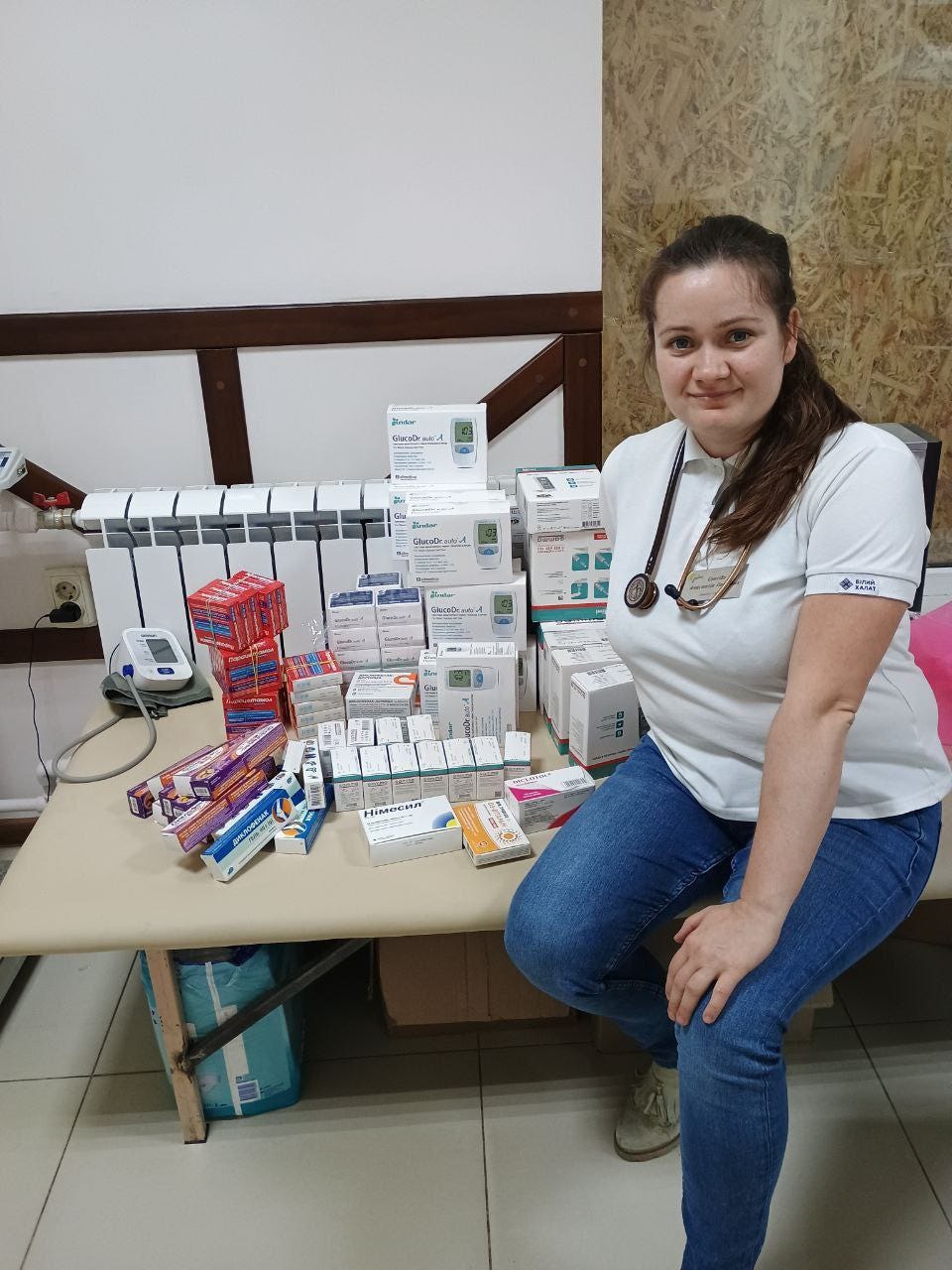
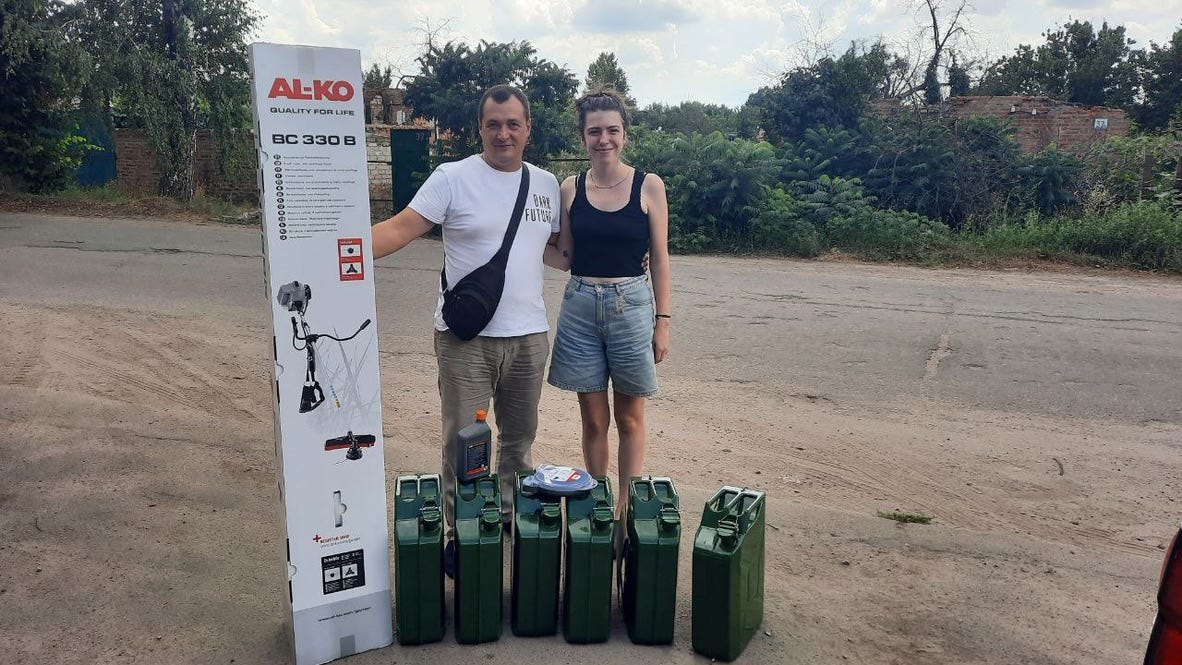
Important efforts - thx. Have donated.
Absolutely heart breaking. I cannot bear to read about Ukraine any more, but I do read your posts. And I wonder, as people have done down the ages, at the evil and the kindness that we are capable of. Bless you.